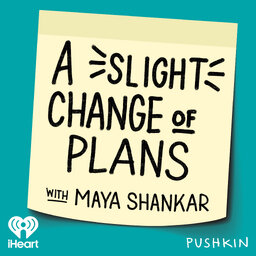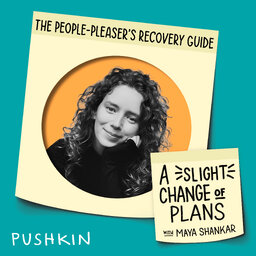A Blind Cook Becomes a Master Chef
Christine Ha fell in love with cooking in college when she tried to recreate the Vietnamese dishes her mother had cooked for her as a child. But when a rare neurological condition left Christine legally blind by age 24, she worried she might never be able to cook again.
You can follow the show at @DrMayaShankar on Instagram. If you’d like to keep up with the most recent news from this and other Pushkin podcasts be sure to sign up for our email list at Pushkin.fm.
Learn more about your ad-choices at https://www.iheartpodcastnetwork.com
In 1 playlist(s)
A Slight Change of Plans
What happens when life doesn’t go according to plan? In this award-winning podcast, cognitive scient…Social links
Follow podcast
Recent clips

A Sneak Preview Of Maya’s New Book
41:49

Kicking Off the New Year Right
01:55

The People-Pleaser’s Recovery Guide
48:23
 A Slight Change of Plans
A Slight Change of Plans